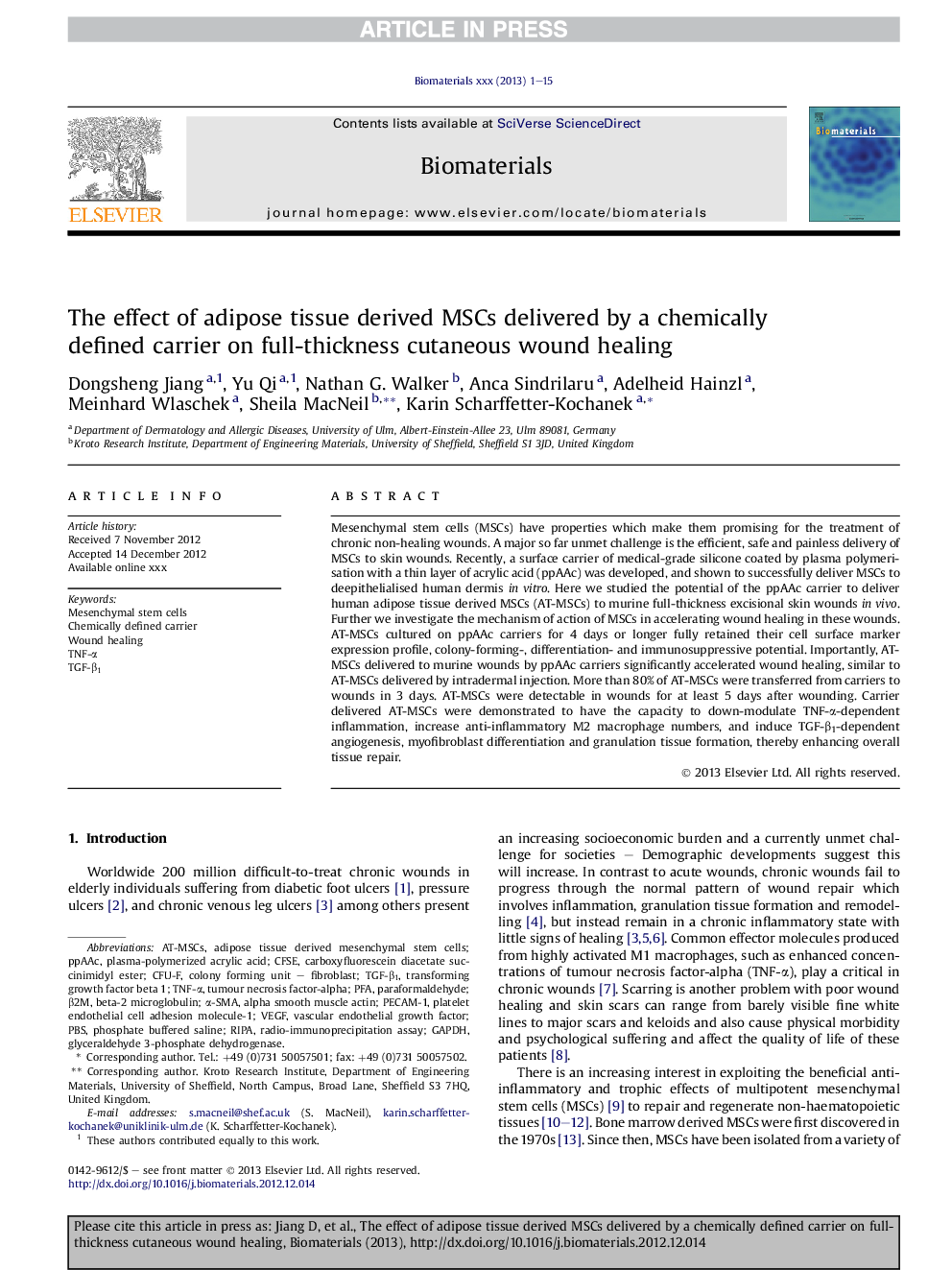| Article ID | Journal | Published Year | Pages | File Type |
|---|---|---|---|---|
| 10228439 | Biomaterials | 2013 | 15 Pages |
Abstract
Mesenchymal stem cells (MSCs) have properties which make them promising for the treatment of chronic non-healing wounds. A major so far unmet challenge is the efficient, safe and painless delivery of MSCs to skin wounds. Recently, a surface carrier of medical-grade silicone coated by plasma polymerisation with a thin layer of acrylic acid (ppAAc) was developed, and shown to successfully deliver MSCs to deepithelialised human dermis in vitro. Here we studied the potential of the ppAAc carrier to deliver human adipose tissue derived MSCs (AT-MSCs) to murine full-thickness excisional skin wounds in vivo. Further we investigate the mechanism of action of MSCs in accelerating wound healing in these wounds. AT-MSCs cultured on ppAAc carriers for 4 days or longer fully retained their cell surface marker expression profile, colony-forming-, differentiation- and immunosuppressive potential. Importantly, AT-MSCs delivered to murine wounds by ppAAc carriers significantly accelerated wound healing, similar to AT-MSCs delivered by intradermal injection. More than 80% of AT-MSCs were transferred from carriers to wounds in 3 days. AT-MSCs were detectable in wounds for at least 5 days after wounding. Carrier delivered AT-MSCs were demonstrated to have the capacity to down-modulate TNF-α-dependent inflammation, increase anti-inflammatory M2 macrophage numbers, and induce TGF-β1-dependent angiogenesis, myofibroblast differentiation and granulation tissue formation, thereby enhancing overall tissue repair.
Keywords
α-SMAadipose tissue derived mesenchymal stem cellsPBSAT-MSCsTGF-β1PECAM-1CFSEβ2MGAPDHCFU-FPFARIPAradio-immunoprecipitation assayalpha smooth muscle actinWound Healingtransforming growth factor beta 1tumour necrosis factor-alphaMesenchymal stem cellsVascular endothelial growth factorVascular Endothelial Growth Factor (VEGF)TNF-αPhosphate buffered salineplatelet endothelial cell adhesion molecule-1Beta-2 microglobulinparaformaldehydecarboxyfluorescein diacetate succinimidyl esterglyceraldehyde 3-phosphate dehydrogenase
Related Topics
Physical Sciences and Engineering
Chemical Engineering
Bioengineering
Authors
Dongsheng Jiang, Yu Qi, Nathan G. Walker, Anca Sindrilaru, Adelheid Hainzl, Meinhard Wlaschek, Sheila MacNeil, Karin Scharffetter-Kochanek,
